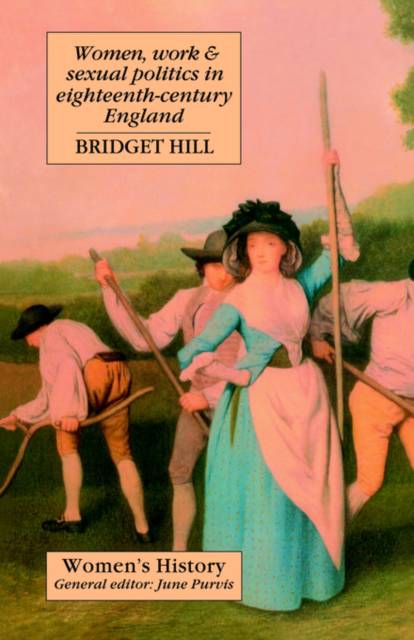
- Retrait gratuit dans votre magasin Club
- 7.000.000 titres dans notre catalogue
- Payer en toute sécurité
- Toujours un magasin près de chez vous
- Retrait gratuit dans votre magasin Club
- 7.000.000 titres dans notre catalogue
- Payer en toute sécurité
- Toujours un magasin près de chez vous
Women, Work And Sexual Politics In Eighteenth-Century England
Bridget Hill
58,45 €
+ 116 points
Format
Description
The author offers a reassessment of how women's experience of work in 18th- century England was affected by industrialization and other elements of economic, social and technological change.; This study focuses on the household, the most important unit of production in the 18th century. Hill examines the work done by the women of the household, not only in "housework" but also in agriculture and manufacturing, and explains what women lost as the household's independence as a unit of economic production was undermined.; Considering the whole range of activities in which women were involved - including many occupations unrecorded in censuses which have, therefore, been largely ignored by historians - Hill charts the increasing sexual division of labour and highlights its implications. She also discusses the role of service in husbandry and apprenticeship, as sources of training for women, and the consequences of their decline.; The final part of the book considers how the changing nature of women's work influenced courtship, marriage and relations between the sexes. Among the topics discussed are the importance of the women's contribution to setting up and maintaining a household; labouring women's attitudes to marriage and divorce and the customary alternatives to them; and the role of spinsters and widows. The author concludes by asking to what extent the industrial revolution improved the overall position of women and the opportunities open to them.; This series aims to re-establish women's history, and to challenge the assumptions of much mainstream history. Focusing on the modern period and encouraging perspectives from other disciplines, it seeks to concentrate upon areas of focal importance in the history of Britain and continental Europe.; Bridget Hill is the author of "Eighteenth-Century Women: An Anthology" and "The First English Feminist".
Spécifications
Parties prenantes
- Auteur(s) :
- Editeur:
Contenu
- Nombre de pages :
- 288
- Langue:
- Anglais
- Collection :
Caractéristiques
- EAN:
- 9781857282139
- Date de parution :
- 16-12-93
- Format:
- Livre broché
- Format numérique:
- Trade paperback (VS)
- Dimensions :
- 140 mm x 216 mm
- Poids :
- 362 g







